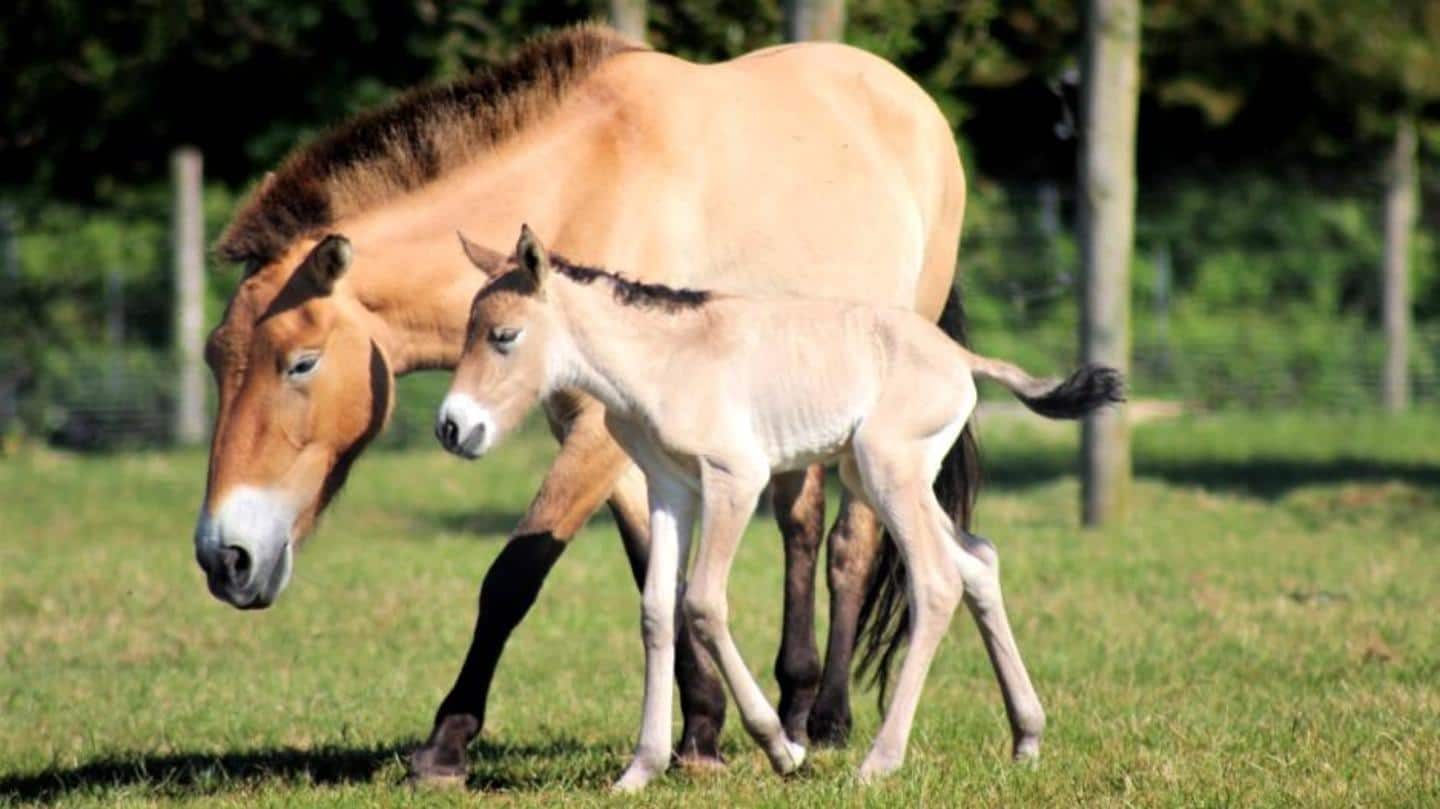
British zoo welcomes foal of rare Central Asian wild horse
What's the story
A foal of a very rare horse species that went extinct in the wild nearly 40 years ago was born at a British zoo.
The male Przewalski's foal born on May 28 has been named Basil by the zookeepers at Marwell Zoo in Hampshire.
Przewalski's horse, also known as Mongolian wild horse or Dzungarian horse, is a species native to Central Asia.
Basil junior
Basil is named after the zoo's first male Przewalski's horse
Although Basil was born to Nogger and Speranzer in the month of May, the news was announced on June 28 with a social media post.
Basil was named after the first-ever male Przewalski horse who lived at the zoo.
Basil Senior, born in 1963, had joined the zoo in 1970 prior to its inauguration in 1972. He was moved to San Diego later.
Endangered species
Reintroduced to their native habitat in Mongolia
Przewalski's horses went extinct in the wild but were reintroduced to their native habitat at the Khustain Nuruu National Park, Mongolia, in the 1990s.
They are considered endangered on the International Union for the Conservation of Nature's (IUCN) Red List of Threatened Species.
"Basil will go on to be an important part of the European Ex-Situ Breeding Programme," wrote the zoo on social media.
Why the celebration
Basil was born after another foal was euthanized
A year prior to Basil's birth, Marwell had to euthanize a Przewalski's foal named Altan, who was born with a health condition.
Basil Junior was born right before zoo is about to celebrate its 50th birthday.
The colt is supposed to join a breeding program in the future to help support the count of what's left of the rare breed.
178 horses
Only true wild horse left on Earth
In its 50-year history, Marwell Zoo has had 163 foals, but all didn't survive.
The zoo believes there are 178 mature Przewalski's horses in the wild now.
Named after a Russian explorer who first spotted them in 1880, Przewalski's horses were found across the Russian Steppes, Mongolia, eastern Kazakhstan, and northern China in the mid-1700s.
It is the only true wild horse on Earth.